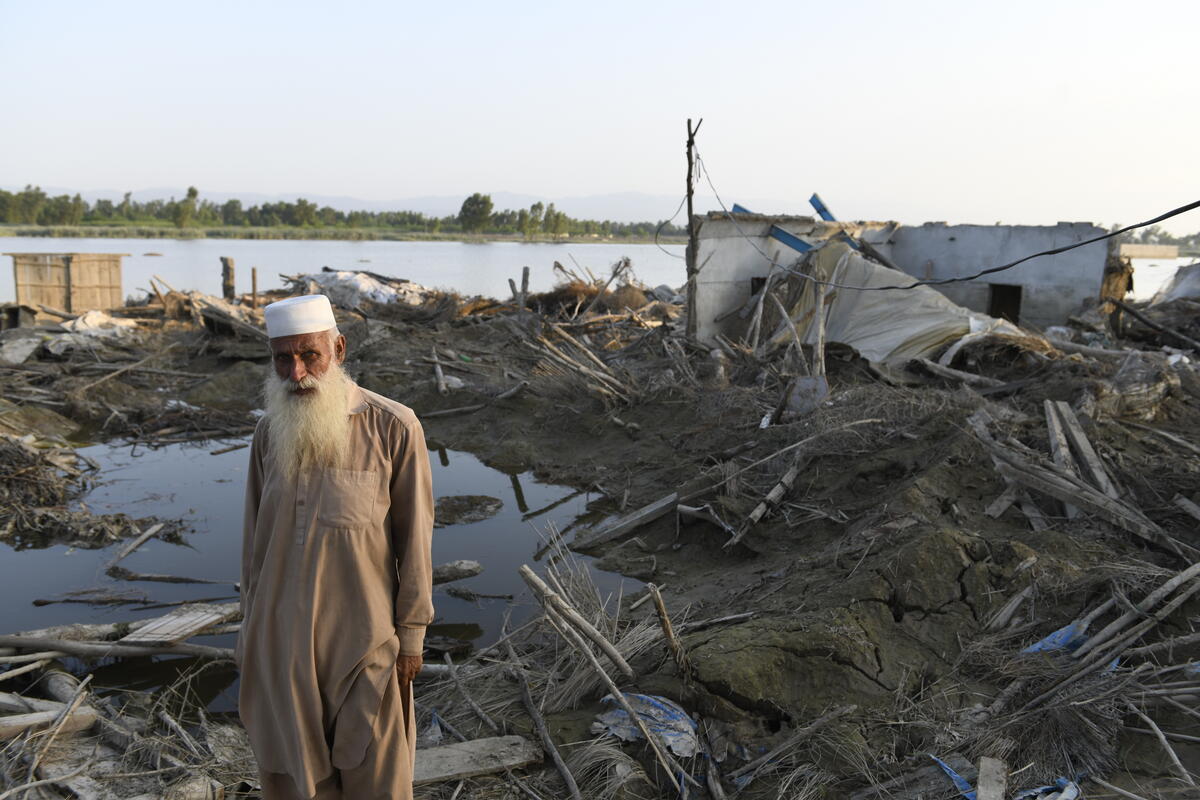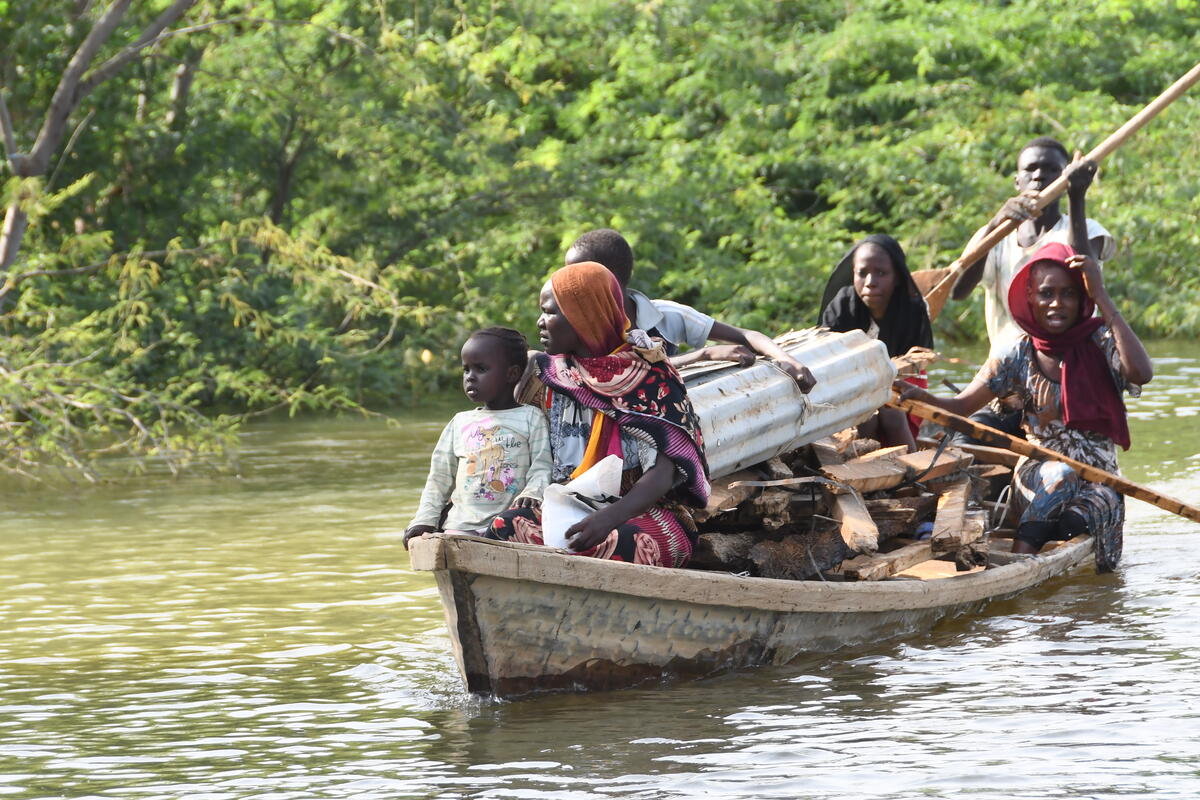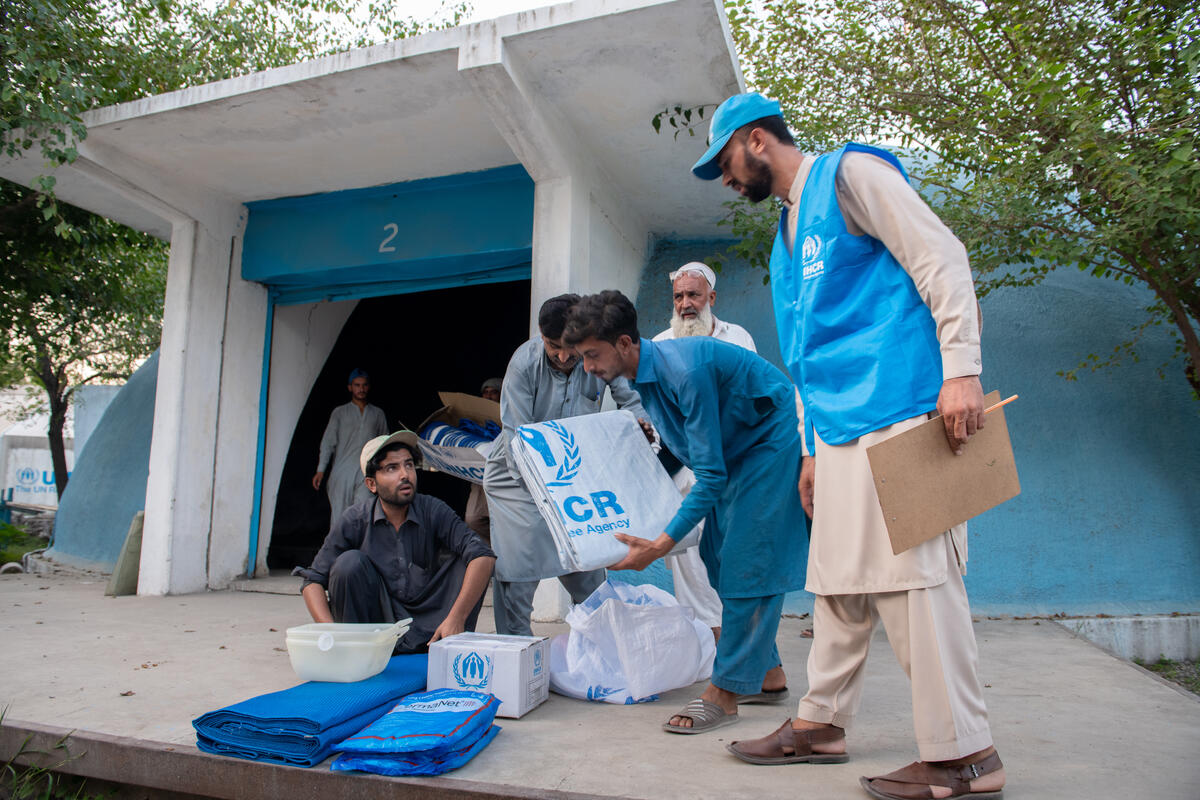UNHCR helps flood victims in Bangladesh
UNHCR helps flood victims in Bangladesh

COX'S BAZAR, Bangladesh, July 29 (UNHCR) - The UN refugee agency has distributed aid to hundreds of villagers displaced by floods in the Cox's Bazar region of Bangladesh earlier this month.
In response to an appeal from the local branch of the Bangladesh Red Crescent Society, UNHCR has since last weekend provided 10,000 items of clothing, 650 cooking pots, 1,500 jerry cans 13,000 jugs, glasses, cups and plates, 100 sleeping mats, 200 lanterns and 2,000 pieces of plastic sheeting.
The latest flooding in south-east Bangladesh has forced more than 10,000 people from their homes in the Cox's Bazar and Teknaf districts and affected about half a million in some 200 villages, according to government officials. Floods are an annual threat in coastal areas of the country.
About 200,000 refugees from Myanmar also live in the area, including almost 30,000 in two official camps. These have not been badly affected by the floodwaters but many people in surrounding areas have lost everything.
One of them, a widowed mother of five called Jaleha, said the aid distribution had been most welcome. "We weren't prepared," she said, adding that they had never seen such big floods. "The water came in at night and it swept away all our food and cooking utensils."
Since the rains ceased late last week, people have been returning to assess the damage. "I lost all my books and now I am unable to study," said Aziza, a 20-year-old university student. "I will try to find a job so that I can make enough money to buy new books and continue my studies." But the rains could resume.
UNHCR, meanwhile, is concerned about the annual effects of the weather. "The residents of Cox's Bazar can ill afford to deal with yet another natural disaster. Poverty is increasing at three per cent annually in the district, and malnutrition and unemployment rates are higher than the national average," said Craig Sanders, UNHCR's representative in Bangladesh. "Every disaster washes away the little that the community has saved, making people even more desperate."
By Danita Topcagic in Cox's Bazar, Bangladesh








